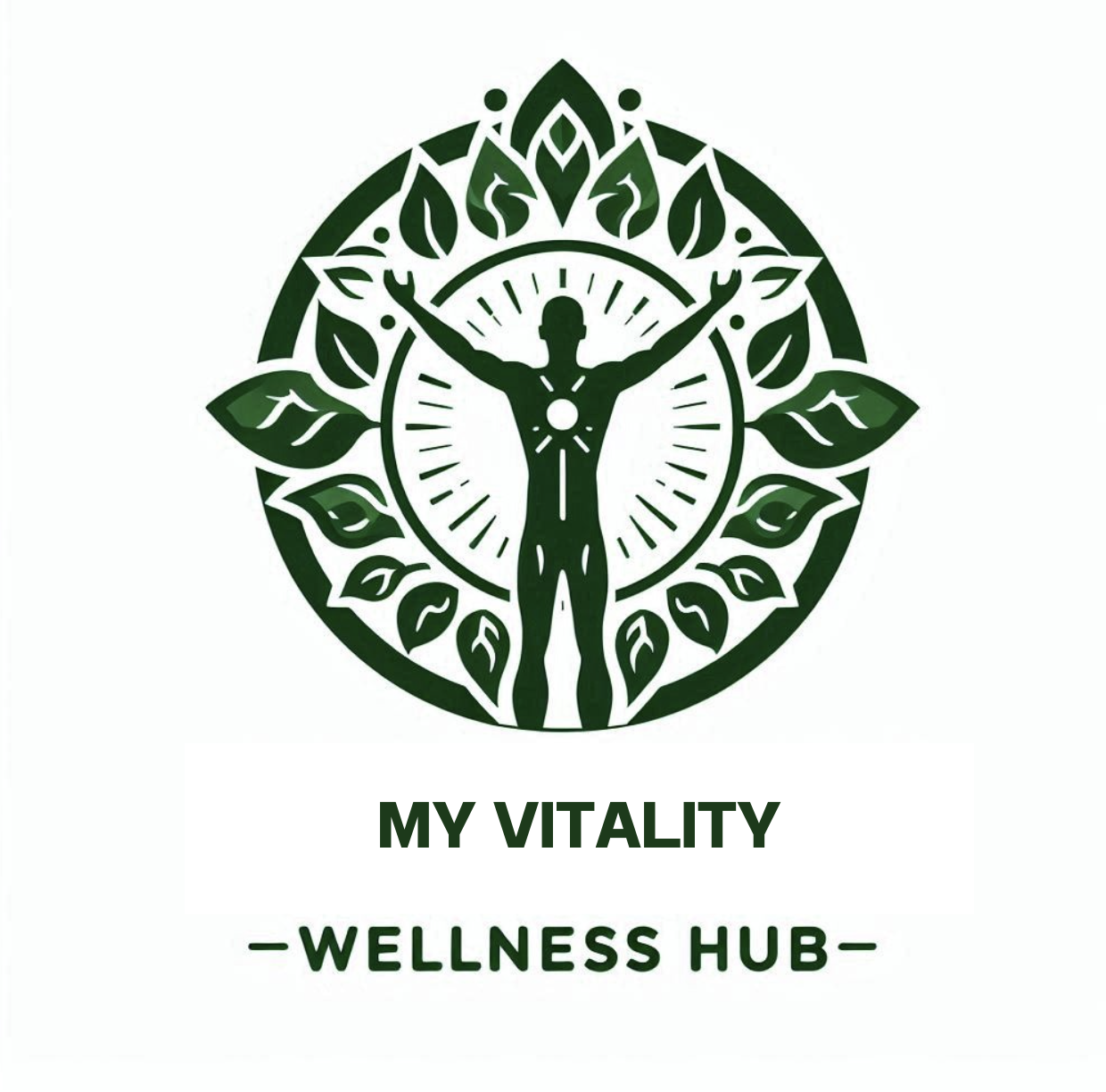Hello there, friend! We all know how confusing it can be to navigate the world of health and wellness. One minute, you’re told to avoid carbs like the plague, and the next, they’re suddenly your best friend. It’s no wonder many of us feel like we’re swimming in a sea of conflicting information, trying desperately to grab onto something that will help us. Trust me, I’ve been there too.
The goal of this blog is to help you cut through the noise, debunk some of the most common health myths, and give you practical tips to make informed decisions about your health. I’m here to be your guide, to break down the science in a way that makes sense, and to offer a little reassurance along the way. After all, when it comes to our health, we all want to do the right thing, but it’s hard when the information is as clear as mud.
Myth 1: Carbs are the Enemy
How many times have you heard that if you want to lose weight, you should cut out carbs entirely? This myth is like that stubborn stain that won’t come out, no matter how many times you wash it. But let’s set the record straight—carbohydrates are not the enemy. They’re more like the misunderstood friend who just needs a little more love.
Carbohydrates are your body’s primary source of energy. Think of them as the fuel that keeps your engine running smoothly. Sure, not all carbs are created equal. Refined carbs, like white bread and sugary snacks, can spike your blood sugar and leave you feeling sluggish. But whole grains, fruits, and vegetables are packed with fiber, vitamins, and minerals that your body needs to function at its best.
So, rather than banishing carbs from your diet, focus on choosing the right ones. Opt for whole grains like quinoa, brown rice, and oats, and load up on veggies and fruits. Your body will thank you, and you’ll have the energy to tackle whatever the day throws your way.
Myth 2: You Should Drink Eight Glasses of Water a Day
This one’s a classic. We’ve all heard that we need to drink eight glasses of water a day to stay healthy. But where did this magic number come from, and is it the golden rule?
The truth is, there’s no one-size-fits-all answer when it comes to how much water you should drink. The amount of water your body needs can vary depending on your age, weight, activity level, and even the climate you live in. Some days, you might need more water, especially if you’ve been working out or sweating a lot. On other days, you might not feel as thirsty.
Instead of stressing over hitting a specific number of glasses, listen to your body. Drink when you’re thirsty, and pay attention to signs of dehydration like dark urine, dry mouth, and fatigue. And remember, it’s not just water that counts—herbal teas, fruits, and vegetables also contribute to your hydration.
Myth 3: You Can Spot-Reduce Fat
Wouldn’t it be great if you could just do a million crunches and magically melt away that stubborn belly fat? Unfortunately, spot-reducing fat is a myth that just won’t die. No matter how many targeted exercises you do, you can’t choose where your body burns fat.
Fat loss happens when you burn more calories than you consume, and your body decides where to shed the fat. It’s like trying to drain a bathtub—you can’t choose which part of the water goes first. That being said, strength training and a balanced diet can help you build muscle and lose fat overall, which will eventually lead to a leaner appearance in all areas, including those stubborn spots.
So, rather than focusing on one area, aim for a well-rounded fitness routine that includes both cardio and strength training. And don’t forget about your diet! It’s a crucial part of the equation when it comes to losing fat and keeping it off.
Myth 4: Eating After 8 PM Causes Weight Gain
How many of us have skipped that late-night snack, fearing that anything eaten after 8 PM will immediately turn into extra pounds? This myth has been around for ages, but the truth is, it’s not about when you eat—it’s about what and how much you eat.
Your body doesn’t have a built-in clock that suddenly stores food as fat after a certain time. Weight gain occurs when you consume more calories than you burn, regardless of the time of day. However, late-night eating can be a problem if it leads to mindless snacking or eating out of boredom rather than hunger.
If you find yourself hungry late at night, choose a healthy snack like yogurt, a piece of fruit, or a handful of nuts. It’s also a good idea to pay attention to your eating habits throughout the day. If you’re not getting enough during the day, you might be more prone to overeating at night.
Myth 5: Detox Diets and Cleanses are Essential for Removing Toxins
The idea of detoxing or cleansing to rid your body of toxins is alluring, especially after indulging in a weekend of less-than-healthy choices. But here’s the thing—your body is already equipped with a highly efficient detox system: your liver, kidneys, and digestive system.
Detox diets and cleanses, which often involve fasting or consuming only juices, can be extreme and unnecessary. They can sometimes do more harm than good by depriving your body of essential nutrients. Instead of going on a restrictive cleanse, focus on nourishing your body with whole foods that support your natural detoxification processes.
Eating a diet rich in fruits, vegetables, whole grains, lean proteins, and healthy fats gives your body the nutrients it needs to detoxify effectively. Drinking plenty of water, getting enough sleep, and staying active are also key components of maintaining a healthy, balanced system.
Myth 6: You Need to Take Supplements to Be Healthy
Walk into any health food store, and you’ll be bombarded with shelves of supplements promising to cure everything from fatigue to wrinkles. While supplements can be beneficial in certain situations, they’re not a magic bullet, and not everyone needs to take them.
The best way to get the nutrients your body needs is through a well-balanced diet. Whole foods are packed with vitamins, minerals, and other beneficial compounds that work together to keep you healthy. Supplements can’t replicate the complexity of these nutrients found in whole foods.
That said, there are cases where supplements may be necessary—if you have a nutrient deficiency, are pregnant, or have certain health conditions. But before you start popping pills, it’s important to talk to your doctor or a registered dietitian to determine if supplements are right for you.
Practical Takeaways
So, where does all of this leave us? Here are a few practical takeaways to help you navigate the sometimes confusing world of health information:
- Focus on Whole Foods: Whether it’s carbs, proteins, or fats, aim to get your nutrients from whole, unprocessed foods.
- Listen to Your Body: It’s easy to get caught up in the latest trends, but your body knows what it needs. Pay attention to how you feel and make adjustments accordingly.
- Stay Informed, but Be Skeptical: There’s a lot of information out there, and not all of it is accurate. Always consider the source and look for evidence-based advice.
- Moderation is Key: Extremes are rarely the answer. Whether it’s eating, exercise, or hydration, balance is essential for long-term health.
- Consult a Professional: If you’re ever in doubt, don’t hesitate to reach out to a healthcare provider. They can provide personalized advice based on your unique needs.
Continue your journey to a healthier, slimmer you today with Renew! Order now here!!!
Final Thoughts
In the end, health isn’t about following rigid rules or chasing the latest fads. It’s about understanding your body, making informed choices, and finding a balance that works for you. And remember, it’s okay to feel frustrated or confused sometimes—we’ve all been there. The most important thing is to keep learning, stay curious, and take care of yourself, one small step at a time.
Watch this video for more info about how to keep healthy:
———–
Disclaimer: This post contains affiliate links. If you purchase through these links, I may earn a commission at no extra cost to you.

Live Healthy
Hello there! We are the Live Healthy Team, the heart of Vitality Wellness Hub. We are excited to share with you our journey towards a strong and vibrant life.



As a doctor, I’ve got to say I’m pretty impressed with this blog post. The author really knows their stuff and does a fantastic job of breaking down some of the most common health myths out there.
I mean, how many times have we heard that carbs are the enemy or that we need to drink eight glasses of water a day? It’s enough to make your head spin!
What I love about this post is that it tackles these myths head-on and provides some solid, evidence-based information to back it up. As someone who’s always looking to stay on top of the latest research, I appreciate that the author took the time to dig into the science behind these claims.
One of the things that really resonated with me was the emphasis on whole foods. In my practice, I’ve seen firsthand how much of a difference a diet rich in fruits, vegetables, and whole grains can make in a patient’s overall health.
And the author is spot-on when they say that focusing on these nutrient-dense foods is way more important than counting calories or cutting out entire food groups. However, I would love to add that some recent studies also found some connections between cancer and carbs, cutting or reducing carbs can decrease the spread of some types of cancer, so let’s not forget that.
Another myth that I’m glad the author addressed is the idea that you can spot-reduce fat. I can’t tell you how many patients I’ve had who come in frustrated because they’re doing a million crunches a day but still can’t seem to get rid of that belly fat. As the post explains, it’s not about targeting specific areas – it’s about creating an overall calorie deficit through a combination of diet and exercise. One important example that I went and experimented with myself is keto diet and low carb diet which improved the fat burning in my belly after only the first month.
Now, I will say that I had a slight raise of my eyebrow at the mention of that “Renew” product at the end. As a doctor, I’m always a bit cautious about endorsing specific supplements or products without really knowing the science behind them. I think it’s important to remember that while some supplements can be helpful in certain cases, they’re not a magic bullet – and they’re definitely not a substitute for a healthy lifestyle.
Overall, though, I think this post is a great resource for anyone looking to sort through the noise and get some real, trustworthy information about health and nutrition. The author’s conversational style and practical tips make it an easy read, but there’s also plenty of info out there for those who want to dive a little deeper.
So, if you’re feeling a little overwhelmed by all the conflicting health advice out there, give this post a read. And remember – at the end of the day, the best thing you can do for your health is to focus on your diet, listen to your body, and your doctor, and find a balance that works for you.
Trust me, your doctor will thank you!
Thank you so much for sharing your perspective as a doctor! It means a lot to hear that you found the blog post both informative and well-researched. I appreciate your insights, especially regarding the nuances of carbohydrate intake and its potential links to cancer—those are crucial considerations that add depth to the discussion. Your experience with the keto and low-carb diets as tools for fat reduction, particularly in the belly area, is valuable and highlights the importance of personalized approaches to health.
I completely agree with your caution around supplements like the “Renew” product mentioned. While they can sometimes offer benefits, it’s always important to approach them with a critical eye and prioritize a balanced, healthy lifestyle first and foremost.
Thank you again for your kind words and for adding your expertise to the conversation. It’s always great to have the support of health professionals who are just as passionate about debunking myths and promoting evidence-based information. Your patients are lucky to have such a thoughtful and informed doctor guiding them!
Regards,
Live Healthy Team.
Live Healthy,
I quickly decided this was the best article I have read in a while about common health myths and thank you so much for busting the water intake, and carbohydrates myths. Both of those myths drive me nuts! Another myth I am a huge fan of being busted is the supplements!
The one true enemy, refined sugar, can be eliminated safely. We eat plenty of natural sugars in fruits and veggies, we do not require refined sugar for sustaining life.
If I drank the full 8 glasses of water every single day as suggested, I would probably drown lol just kidding, but I would feel way too full to be eating the required foods, that’s for sure.
I agree fully with you when you say to listen to our bodies! Focusing on good whole foods and using moderation with fatty and unhealthy snacks is also key. Overall this is a fantastic article.
I am generally in great shape, but from time to time, I like to research to make sure I have not been overlooking any crucial health care tips. I am not getting younger lol. This article has eased my rambunctious mind and I feel that I am on the right track still.
Thanks,
Stacie
Thank you so much for your thoughtful and enthusiastic response! I’m thrilled you found the article helpful, especially when busting those persistent health myths. It’s great to know you’re already on top of things, focusing on listening to your body, enjoying whole foods, and staying informed.
Your point about refined sugar is spot on—it’s amazing how much we can satisfy our sweet tooth with natural sources like fruits and vegetables. And yes, the idea of drowning in 8 glasses of water a day is a bit overhyped; it’s all about balance and what works best for you.
It sounds like you’re doing all the right things to stay healthy and keep your mind at ease, and I’m glad the article could reinforce that for you. Keep up the fantastic work on your health journey, and thank you again for your kind words!
Regards,
Live Healthy Team